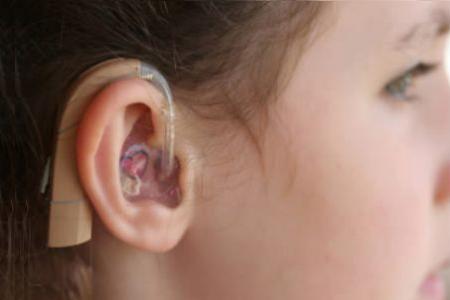Gather Information & Schedule an Appointment
The first step to purchasing hearing aids is obtaining information about hearing loss and treatment options. Although you can learn a great deal by reading information online, the best way to get this kind of information is by meeting one-on-one with a hearing healthcare professional such as an Ear Nose and Throat specialist (Otolaryngologist) or audiologist.
These hearing specialists will be able to give you information that applies specifically to you and your condition that will not be easily attainable online. If you do not wish to make an appointment, you may be able to contact the office for brochures or other educational materials.
When making a call to schedule an appointment, ask what you should bring. Usually, patients bring a companion or significant other with them to keep them comfortable. Additionally, the familiar voices of significant others can be used to conduct communication assessments to make conclusions about your condition. When you call, be sure to ask any other questions you may have, such as those about possible fees, directions, or length of appointment.

Your First Appointment
Upon your first visit, your hearing care professionals will greet and welcome you. There may be more educational materials in the waiting room about hearing loss and treatment options. You likely will need to fill out required forms that will inform you of your rights as a patient.
Before you receive an actual hearing test, you will need to talk with your hearing specialist to help them understand your unique needs and medical history. Doing so will allow your specialist to get you the treatment that best suits your case.
Your hearing specialist will discuss with you your hearing experiences and issues, as well as your communication needs. In addition, your specialist will conduct tests to determine the severity and (in some cases) the causes of your hearing loss, which generally take about half an hour.
The complete hearing test, done in a sound treated area, generally includes an ear inspection as well as tests that measure your hearing sensitivity, loudness discomfort, and ability to understand speech in noisy environments.
After these tests, your specialist will review the conclusions of the results and will discuss with you your current condition of hearing loss and your treatment options. From here, you hearing specialist can suggest and possibly demonstrate some of your options – but you do not have to make a choice right on the spot. However, you should get a general idea of what options are out there and what may be right for you.
Fitting for Hearing Aids & Orientation
After making your decision and signing a purchase agreement, you will return to the hearing specialist to be fitted for ear molds (if you pursue an option requiring them). Your hearing aids will be specially crafted and specially programmed to fit the results of your tests. You can expect initial hearing aid fitting lasts anywhere between one to one-and-a-half hours.
Once you receive your customized hearing aids, you go through an orientation with your specialist, where they will provide a wearing schedule that explains when and where to wear the devices. They will discuss how to properly care for the devices and how to follow up on adjustments.
To better understand the process of buying hearing aids, consult a hearing specialist.
Daniel Shaw is a senior health advisor at a senior housing community. He loves helping and answering any questions that senior members and their family might have about senior health. Daniel loves walking around the community and playing scrabble and horseshoes with the members of the community.




